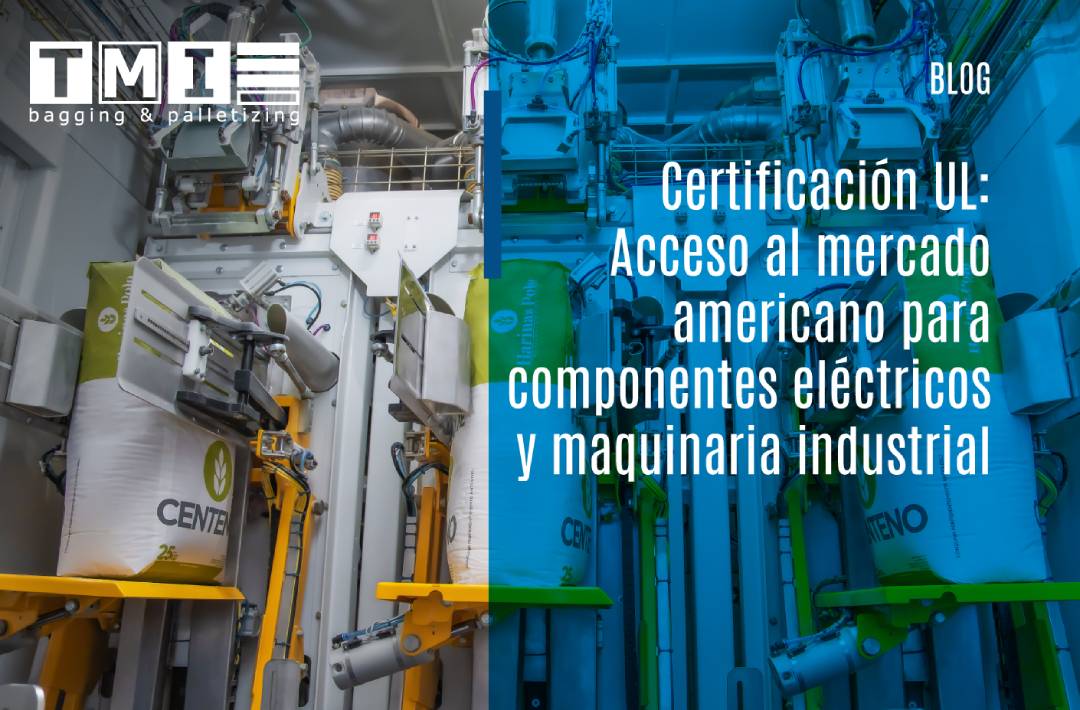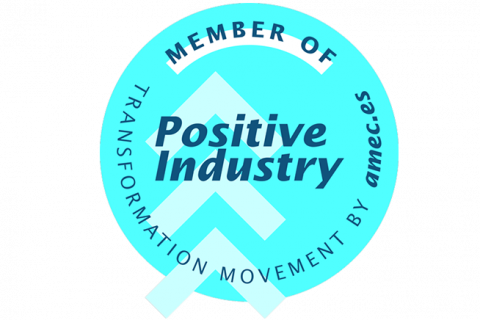
-
Company
-
We talk your language
TMI is your partner for bagging, palletizing and stretch-wapping systems.
- About us
- Talented people
- News
-
-
Solutions
-
Complete bagging lines
TMI manufactures complete bagging lines: from the dosing of the finished product to the protection of the load. We supply bagging machines, palletizers and stretch-wrapping systems that suit your needs. Browse through our portfolio and find the optimal solution for your end of line.
- Bagging systems
- Bag palletizing systems
- Pallet stretch-wrapping
- Industry 4.0
-
-
Industries
-
Solutions that fit your project
We develop bagging and palletizing solutions for different industries. Choose yours to see the solutions that best suit your needs.
- Food
- Agri-food
- Chemicals & petrochemicals
- Construction & mining
- Recycling
-
- Services
- Contact
- Ask for a quotation
-
Company
-
We talk your language
TMI is your partner for bagging, palletizing and stretch-wapping systems.
-
-
Solutions
-
Complete bagging lines
TMI manufactures complete bagging lines: from the dosing of the finished product to the protection of the load. We supply bagging machines, palletizers and stretch-wrapping systems that suit your needs. Browse through our portfolio and find the optimal solution for your end of line.
-
-
Industries
-
Solutions that fit your project
We develop bagging and palletizing solutions for different industries. Choose yours to see the solutions that best suit your needs.
-
- Services
- Contact
We talk your language
News
UL Certification: Accessing the American Market for Electrical Components and Industrial Machinery
December 27, 2024
In the markets of North America, Central America, and some South American countries, UL certification is an essential requirement for manufacturers of electrical components.

In the markets of North America, Central America, and some South American countries, UL certification is an essential requirement for manufacturers of electrical components, control panels (industrial control panels), and industrial machinery. Compliance with this standard is necessary to ensure legal conformity and enhance trust in your products.
In this sense, UL self-certification allows manufacturers and panel builders to streamline this process and quickly adapt to the requirements of this market.
In this article, we explore what UL certification is, the main types of markings available, and how TMI addresses these requirements to ensure products comply with the specific regulations of each market.
What is UL, and why is it crucial for the North American market?
UL, or Underwriters Laboratories, is an independent organization dedicated to establishing safety and quality standards for a wide range of products.
Its relevance lies in the need for markets in the USA, Canada, and other American countries to ensure that electrical equipment and machinery meet specific quality and safety requirements, such as those stipulated in the NFPA 70 (National Electrical Code or NEC).

Illustration 1: Global Market (Source: ul.com)
Types of UL Certification
From an industrial perspective, UL certification ensures that components or equipment carry specific markings that certify compliance with these standards.
The main certifications in this regard include:
- Certification of electrical components.
- Certification of electrical control panels.
- Certification of industrial machinery.
Depending on the product's characteristics, these markings can be classified as follows:
- "Listed" (Listed): Indicates that the product complies with all relevant UL standards and is registered in UL's official database, available for public consultation.
- "Classified" (Classified): The product has been evaluated for specific properties, limited risks, or particular conditions of use.
- "Recognized" (Recognized): Applies to components designed to be part of a final product and not for independent use.
Additionally, UL markings may specify whether the product complies with applicable regulations in the USA, Canada, Europe, or other markets.

Illustration 2: UL Markings, some common examples
(Source: ul.com)

Illustration 3: Examples of UL markings for electrical panels
Standards, Regulations, and Codes for UL Certification
While there is a global trend toward harmonizing regulations across countries and continents, significant differences still exist. For example, in the case of industrial control panels and machinery, the American market requires consideration of the following standards:
- UL 508A: Electrical Control Panel Certification. This standard regulates the design and construction of industrial control panels used in applications like HVAC systems, manufacturing machinery, and industrial plants. Key requirements include proper component sizing, appropriate wiring, and compliance with NFPA 70 (NEC).
- UL 2011: Industrial Machinery Certification. Designed to ensure that machines comply with safety standards in industrial environments, based on NFPA 79 guidelines. It can be considered equivalent to the Machinery Directive in Europe. Requirements include integrating safety systems, protection against electrical overloads, and operational risk control.
- NFPA 70 (NEC): National Electrical Code. The NEC establishes standards for the safe installation of electrical equipment in the USA, covering system design, installation, and review. It is equivalent to the Low Voltage Regulation in Spain. UL certification ensures compliance with the NEC, making products acceptable during inspections.
- NFPA 79: Electrical Safety Standard for Industrial Machinery. Focuses on protecting operators and equipment from electrical and fire hazards.
- ANSI (American National Standards Institute). Similar to AENOR in Spain, it develops standards for products, services, and processes.
- OSHA (Occupational Safety and Health Administration). A governmental agency regulating workplace safety and health.
How TMI Addresses UL Certification
At TMI, we work to ensure that our projects meet the specific requirements of the Canadian and U.S. markets. Our approach includes:
- Self-certification of electrical control panels: We have personnel accredited as Manufacturer Technical Representatives (MTR), ensuring that our technicians possess the necessary knowledge to apply the UL 508A standard. This accreditation is personal, non-transferable, and must be renewed every three years.
- Use of certified components: In our projects, we use electrical components with UL markings, ensuring their compatibility with local regulations.
- Customer support for machinery certification: We provide all necessary technical documentation for our clients to certify machinery at their facilities.
Through these practices, we help our clients comply with the strictest regulations and access North American markets with complete confidence.

Illustration 2: Installation Diagram vs. Standard and/or Code(Source: ul.com)
Benefits of UL Certification
UL certification offers key advantages in our projects:
- Cost reduction: By avoiding recurring external certifications, significant costs are saved during the process.
- Speed: Products reach our customers faster by eliminating dependency on third parties.
- Total control: As manufacturers, we have control over testing and documentation, ensuring that products meet clients' specific requirements.
- Flexibility: Facilitates adaptation to changing requirements in the USA and Canadian markets, such as updates to the NFPA 70 (NEC).
UL Certification for the American Market by TMI
UL certification is both a technical requirement and a strategic tool for accessing regulated markets, ensuring safe and high-quality products.
At TMI, we combine technical expertise and regulatory knowledge to simplify this process for our clients, ensuring their products meet the stringent standards required in the USA, Canada, and other applicable regions while reducing costs and timeframes.
If you need advice or support for this process, our team is ready to help you comply with the market's most demanding standards. Contact us for more information.
Next article
January 14, 2025
This year, TMI Bagging & Palletizing is pleased to announce that we will be participating in several of the most relevant fairs in the industry. A year full of opportunities to connect with you and share our innovations.

TMI Técnicas Mecánicas Ilerdenses SL in the framework of the ICEX Next Program, has been supported by ICEX and co-financed by the European ERDF fund. The purpose of this support is to contribute to the international development of the company and its environment.

TMI, en el marco del Ministerio de Industria y Turismo, ha desarrollado un proyecto titulado 'Implementación de mejoras integrales a los procesos, calidad y trazabilidad de TMI', subvencionado por dicho ministerio y financiado por la Unión Europea a través de Next Generation EU, en el marco de la convocatoria de apoyo financiero a planes de innovación y sostenibilidad en el ámbito de la industria manufacturera 2022.

Company
Address
Polígono Industrial Camí dels Frares,
C/ Alcarràs, parc 66 - 25190 - Lleida · SPAIN Tel.
+34 973 25 70 98







